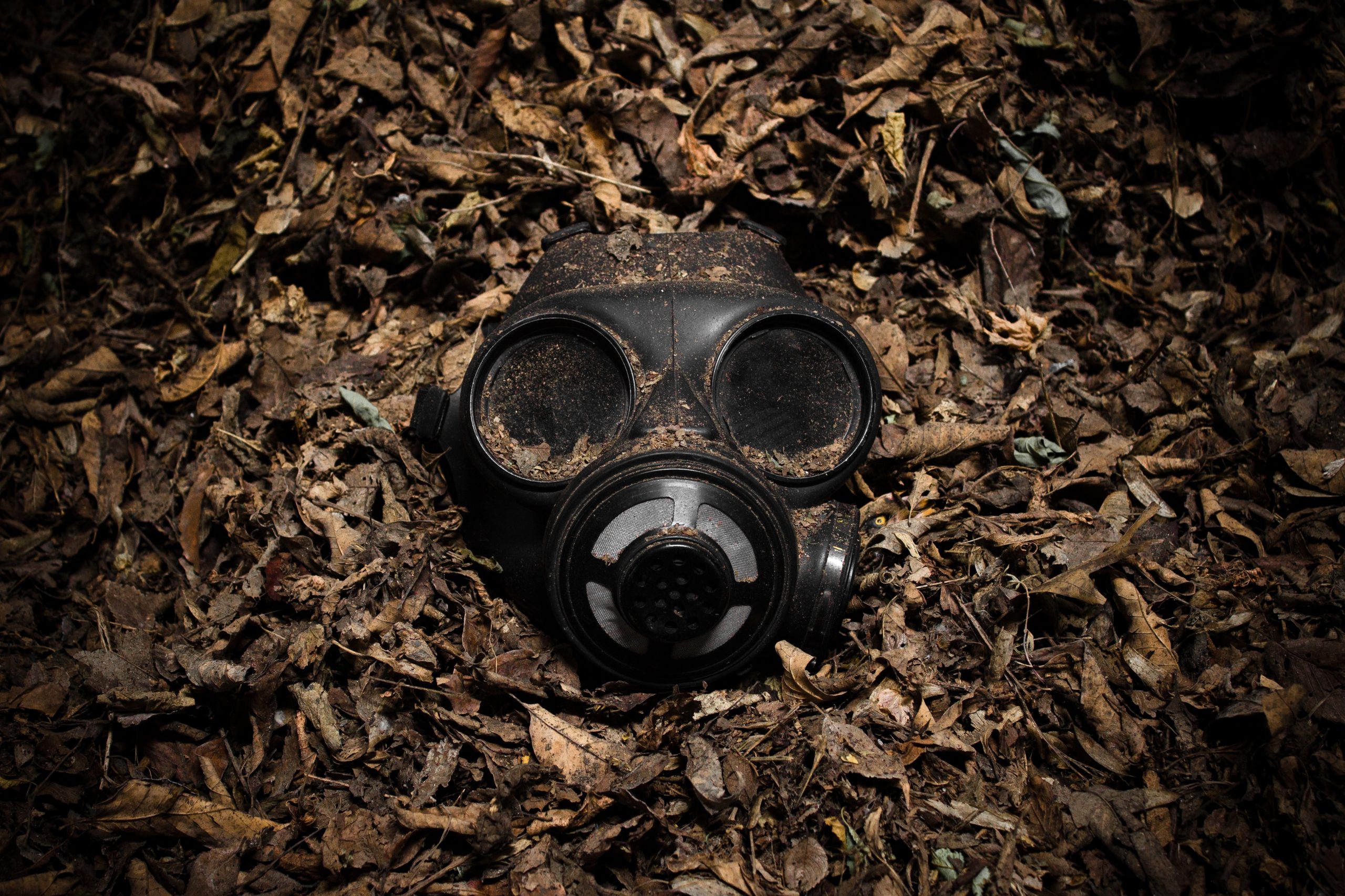An 18-year-old Jewish student in her freshman year at Occidental College in Los Angeles
said she will not return for the spring semester because much of the student body and faculty began expressing anti-Israel and antisemitic views following Hamas’ terror attack on Israel on Oct. 7.
“There was this massacre of people in Israel and a very loud silence from the school,” said the student, who would only speak on condition of anonymity for fear of retribution. “Then there was a very loud voice from Students for Justice in Palestine saying, ‘Free Palestine from the river to the sea,’ and ‘There’s genocide happening.’”
“It was just a one-sided conversation on campus and I wasn’t comfortable being one versus 1,000,” added the student. “I had this overwhelming feeling that I don’t belong there — that I shouldn’t be there.
Her mother said her daughter will attend another school that has accepted her in the fall, and that she will spend the spring semester working on a political campaign — but would not provide more details.
As concerns have mounted over the treatment of Jewish students on college campuses, particularly since Hamas’ Oct. 7 triggered Israel’s military campaign in Gaza, the Occidental student stands out. Though many students say they have struggled in the face of mounting anti-Jewish and anti-Israel incidentsthere are far fewer reports of students actually transferring over them.
That doesn’t mean Occidental, a private college where about 6% of students are Jewishaccording to Hillel, is necessarily a tougher place to be Jewish than other campuses. But the families of other Jewish students at the college described similar struggles.
Interviews with the parents of three other Jewish Occidental students — two freshmen and a sophomore — revealed more Jewish students who feel isolated on campus over wartime demonstrations and other protests. The parents all spoke on the condition of anonymity for fear of retribution.
Faculty allege Israel is committing genocide
Occidental leaders said they were aware of Jewish students’ distress and in a November letter to the college community, President Harry J. Elam Jr. wrote that the school “does not and will not tolerate antisemitic, Islamophobic, or other forms of targeted harassment.”.
Rod Leveque, the school’s vice president for marketing and communications, said that Elam has convened a task force to organize spring events “to promote constructive dialogue and conversation.” In addition, he said, Elam has voiced support for the faculty creating a Middle Eastern and North African studies minor or a Jewish studies minor.
But a number of parents have questions about the faculty itself after 59 of the school’s 150 faculty members signed a letter that described Israel as a “settler colonialist state,” described Israel’s incursion into Gaza as “a war crime,” and that “what is occurring on the ground is genocide.” More than 23,000 Palestinians have been killed in the war, according to the Hamas-run health ministry in Gaza.
While many demonstrating against Israel accept that conception of the war, it’s anathema to those for whom Israel is a Jewish homeland and the war a just campaign to root out Hamas.
“I don’t understand how they got jobs as teachers,” one parent said after reading the letter.
Another parent said her son questioned how faculty members who signed the letter could treat him “fairly” as a Jewish student. That same parent said his son was afraid, and confined himself to his room when pro-Palestinian demonstrations were at their peak this fall.
“He feels his social circle has gotten much smaller and that he’s been excluded from different social options on campus since this began,” the parents said. “He even left campus and flew across the country to come home for a weekend because he felt so uncomfortable on campus.”
The faculty letter also came to the attention of the Anti-Defamation League, which criticized its description of what is happening in Gaza as “Israel’s genocidal project against Palestinians.”
“This framing is inaccurate, offensive and a disservice to students,” the ADL said in a statement sent to the school.
“Of particular concern, is the manner in which the faculty who signed the letter appear to have partnered with the Occidental chapter of Students for Justice in Palestine.”
RELATED: The secret history and uncertain future of Students for Justice in Palestine
Parents also voiced concern about chants heard from students on campus, including: “Settlers, settlers go back home, Palestine is ours alone.” Among the signs held aloft were those reading, “Honoring our martyrs,” “Death to colonial settlers,” and “F–k the IDF.”
The three parents are among the 83 with students at Occidental who are members of the Facebook group Mothers Against College Antisemitismwhich was founded on Nov. 5 as a forum to discuss concerns about antisemitism on campus. It has more than 54,000 members.
The sit-in
On Nov. 13, a group of SJP students led other students and some faculty on a sit-in in the Arthur G. Coons administration building for three days. Among their demands: that the school acknowledge Palestinian deaths, create a Middle East and North African studies minor, and promise in writing to protect pro-Palestinian students and faculty against retaliation for the sit-in.
During the sit-in, the students placed a sign in one of the windows reading, “Death to Settler Colonialism.”
“I take great offense to that,” said one parent, “because one-third of the staff has just said that Israel — and Jews by extension — are those people [colonialists]. Having a sign calling for their deaths is not just free speech, it’s a call to action — it’s hate speech.”
In an email to the students staging the sit-in, Elam and two other college officials acknowledged their right to free expression on campus, but said that by participating in an overnight occupation of the administration building they were “in open and ongoing violation” of college rules.
Though one of the parents claimed the sit-in ended when “the president gave in to all of their demands and Students for Justice in Palestine declared victory and had a press conference on the steps the next day,” a college spokesperson said Occidental did not give in to all the students’ demands.
Asked if it agreed to any of them, Rachel Warwick, its director of communications, said that “the college is committed to ongoing dialogue around the concerns that the students articulated.”
Peter Dreier, a professor of politics and urban and environmental policy at Occidental, said two of the students’ demands were not met: that the college participate in divesting in companies that do business with Israel and a call for a cease-fire in Gaza.
Dreier, who identified himself as a “committed Jew” and has taught at the school for 30 years, acknowledged that “there are Jewish and Arab students feeling traumatized by what is happening in the Middle East. They are scared, but it’s not because of what is happening at Oxy,” he said, using the nickname for Occidental.
The sit-in and its aftermath prompted the ADL to issue a second statement saying it is “very concerned about the current state of Jewish life at Occidental College.” The ADL said college leaders have “empowered, encouraged, and rewarded Students for Justice in Palestine and failed to enforce their own code of conduct or policies” in a way that has impacted the safety and ability of Jewish students to participate in campus life.
Asked about the freshman who is transferring after only the first semester, Dreier replied: “Any parent who thinks they can pull their student out of Oxy and put them on a college campus where there is no controversy about the Middle East — including offensive slogans — is living in a dream world. No parent can insulate their children, whether they are Jewish or Arab, from the controversy happening in the Middle East and that reverberates here in the U.S.”
Dreier noted that shortly after the Hamas attack on Oct. 7, the campus Hillel group gathered and around 60 students discussed how they were feeling, expressed support for each other and laid the groundwork for further meetings.
He said the college has tried to encourage civil conversation about the Middle East, and next semester will organize programs and speakers to talk about antisemitism and Islamophobia.
“There is a lot of ignorance about the Middle East, the Holocaust and the history of Palestine,” Dreier added. “We are an educational institution and when a controversy like this comes up, our job is to educate the students about what is happening and why and to be fair to all the different points of view.”










